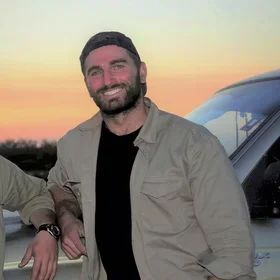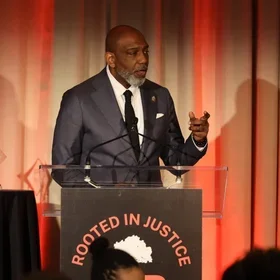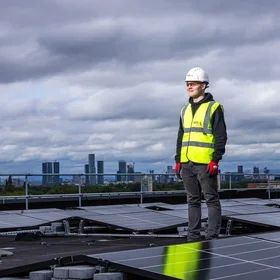Former Colombian President Juan Manuel Santos was awarded the Nobel Peace Prize in 2016 for bringing an end to the 50-year-long civil war between Colombia and the Revolutionary Armed Forces of Colombia (FARC). Recently, the Master of Science in Negotiation and Conflict Resolution (NECR) program invited President Santos to talk about his impressive career, including the creation of the Open Library of Colombian Peace Process. Hosted by NECR Program Director Dr. Beth Fisher-Yoshida, the former president discussed ways to conduct a transparent and inclusive peace process, the opportunities and challenges he faced, and his leadership advice for the students.
What is the Open Library and why was it created?
The Open Library of the Colombian Peace Process was created to address questions about the peace process in Colombia. This collective effort is aimed to help people find certain aspects of peace processes around the world and has collected more than 5,000 documents from people who are involved directly and indirectly.
When I first started the negotiation in Cuba, I did not have much information since the previous peace commissioner before me had taken all of their documents. Instead, I wanted to leave as much information as possible regarding the peace process.
There are demands for this information, especially because the peace process in Colombia is very unique. We did not have religious difficulties nor territorial confrontations, but we did have a conflict that had lasted for more than 50 years. Additionally, this is the first successful peace process negotiation under the umbrella of the Rome Statute; the first peace process that puts the rights to justice, reparations, truth, and non-repetition of the victims in the heart of negotiation; and the first peace process where two conflicting parties got together and created a special agreement.
The peace process has two faces. First is peacemaking; disarmament, demobilization, and reintegration (DDR); and then peacebuilding (reconciliation). The second one takes time, needs patience, and it is more difficult. We want to create a transparent online library that can be easily accessible for everybody.
Another unique aspect of the Colombian peace process is that it’s very inclusive. What is the thinking behind that?
It’s sort of a paradox. On one end, one of the reasons why the peace process failed is because they were not inclusive. If people don't feel that they are a part of the process, their first reaction is to reject. For example, all of my predecessors thought that the military would be the one who would have rejected the peace process to maintain their budget or power. However, with my military background, I knew that that was not true. In fact, they can become allies. So, I put the two most popular Army and Police Generals on the negotiating team.
We also wanted to negotiate beyond traditional DDR and take the opportunity to correct structural problems we had since our independence. The FARC was born in the rural areas, and we understood that it’s very important for them to say they had achieved a good progressive rule reform. But at the same time, we know that Colombia has one of the worst land distributions in the whole world. We have 44 million hectares of productive land, and we’re only using seven. However, most of those seven hectares are inefficient with non-sustainable production, so we had the opportunity to include that.
At the same time, I talked with the indigenous communities and did not neglect their knowledge and views. I also learned the importance of making peace, not only among human beings but with nature as well. We are at war with nature, and it is going to retaliate if we do not fight climate change. I also learned that women are usually the majority of victims in wars, so we included a gender chapter to give privileges to women post conflict.
Do you have any other reflections on the Open Library’s implementation now?
We have learned a lot. We’re going through a difficult moment because the current government is not very friendly with the peace process and tried to derail it, but they couldn't. We shielded the peace process constitutionally and politically. One of the most important aspects of this process is the support from the international community. What has been important is the pressure from the international community to implement the peace accord.
Now that the peace process is finally implemented, I hope it is being translated into the budget, political will, and action. I am optimistic that the next government will implement the peace process because all of the candidates said they would. It is important for the Colombians and the international community to keep the pressure on.
What lessons have you learned regarding the communication aspects of the peace agreement, peace building, and reconciliation?
I come from the world of journalism, and there is no magic formula. For instance, we agreed with the FARC that we would be very secretive. They wanted a ceasefire, but I said no because they usually wanted a ceasefire in order to gain more political space and military power. We stated that we would only make it public once we agreed on one of the five specific points of the agenda.
What I did not take into account is how the public's lack of information would be filled by the people who did not like the peace process and utilized the power of fake news. I remember I was in New York in the meeting with the General Assembly when I read false news about our negotiation. Because the information had been so distorted from what was really happening, we had to start communicating. But at the same time, if we publish information in a piecemeal way, it could be used against the states because we’re making different concessions. The analogy I use is that a peace process is like a work of art. The museum or person who’s going to buy it usually does not like it when it's half made. They like it completed so that they can explain the work of art. I was hoping that I would be able to explain the peace process when all of it was negotiated, but I had to submit to reality.
So we started allowing the FARC to tell the press and public what we were doing. If the FARC announced their own version of the negotiation, we also gave our version, and that made the negotiation more difficult. So I don’t have a perfect formula. But if you have a strong opposition to a peace process, you better try to control the agenda. Don't stay quiet and don't be secretive unless you really have to.
As you have been a negotiation student in the past, what advice would you give a young NECR student to better prepare themselves for the future?
I was a representative of Colombia in an International Coffee Organization. We had to negotiate the price and quota for every single coffee-producing and consuming country every year. Since Colombia and Brazil controlled more than 50% of coffee production and export, we had to negotiate with the 68 producing countries as well as consuming countries like the U.S. and Europe.
The first person who taught me how to negotiate taught me many things. The first was that you have to be able to put yourself in the shoes of the person you’re negotiating with. Understand, study, and know their story, their fears, expectations, and what it is exactly that they would want. Second, he taught me humility. Never think that you have all the answers to your dilemma. People who you negotiate with might know better than you, so be open-minded.
Additionally, have a very clear alternative to a nonagreement, including when and how you are going to make concessions, and what the cost of nonagreement is. Especially in multilateral negotiations, take into account the interests of the small countries. And last but not least, be very patient, and be yourself.
Watch the full discussion here and learn more about Columbia’s M.S. in Negotiation and Conflict Resolution program.


